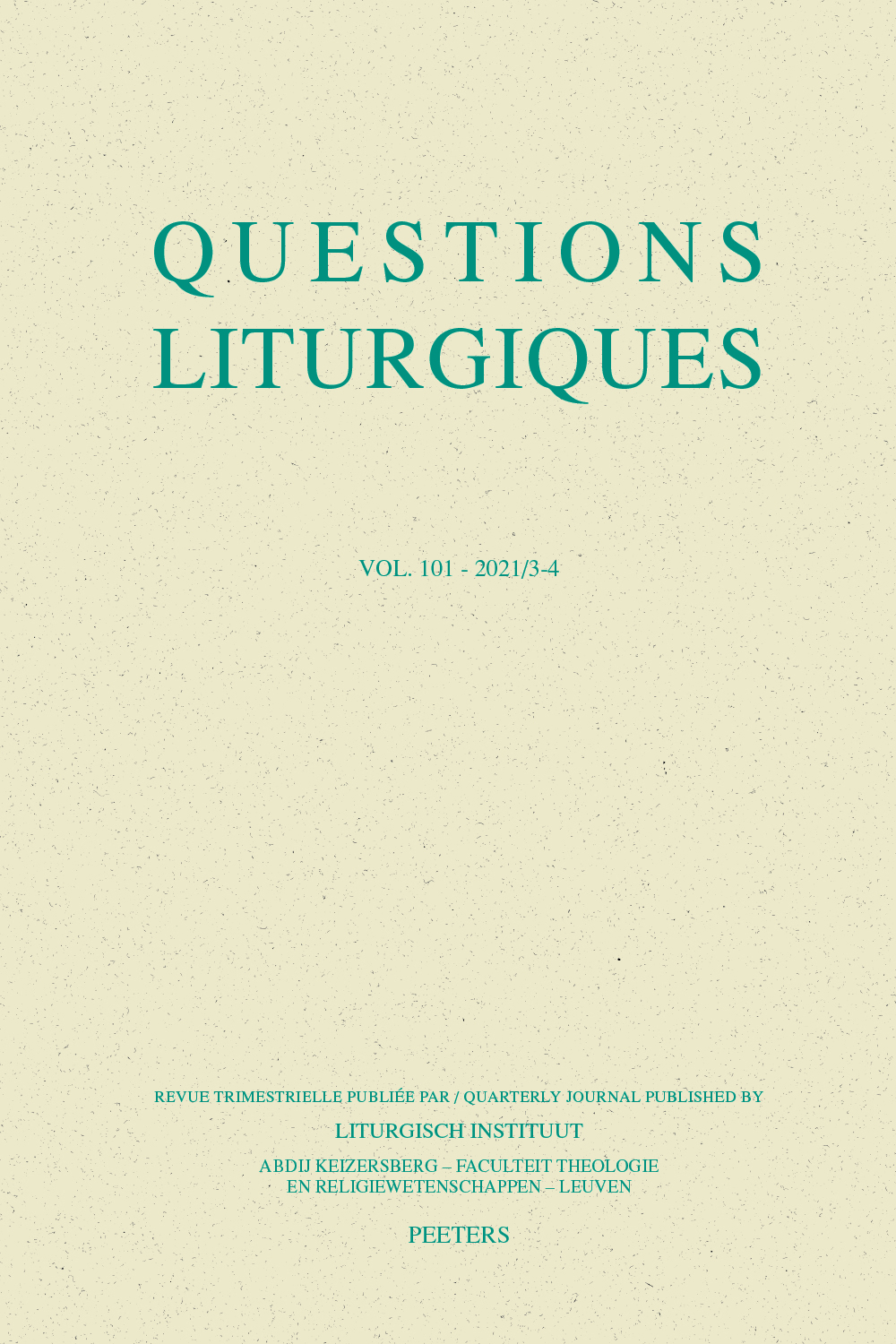 previous article in this issue previous article in this issue | next article in this issue  |

Preview first page |
Document Details : Title: The Name of God in the Scriptures and in Liturgy Author(s): BOUGHTON, Lynne Courter Journal: Questions Liturgiques/Studies in Liturgy Volume: 90 Issue: 1 Date: 2009 Pages: 23-43 DOI: 10.2143/QL.90.1.2040728 Abstract : In both scholarly and popular discussion, it has been proposed that the Tetragrammaton by which God conveyed his identity to Moses is a name that should not be vocalized. This is certainly the practice of rabbinic Judaism and this practice seems to have influenced a profound reticence in both the Septuagint and in Christianity’s Latin translations of the sacred texts. Yet analysis of usage in the Hebrew scriptures, in the writings of Judean sectarian groups during the intertestamental period, and among the earliest generations of Christians indicate that reverence for the Tetragrammaton coincided with its consonants being voiced in worship and in devout conversation. The study undertaken here proposes that cautious enunciation of the divine name is not only appropriate to liturgical worship but offers an opportunity to express aspects of the identity that God chose to reveal to those who seek to keep his covenants. Tant dans les échanges érudits que populaires il a été argumenté que le Tétragramme par lequel Dieu a manifesté son identité à Moïse est un nom qui ne peut être vocalisé. Cela est certainement la pratique du judaïsme rabbinique et son usage paraît avoir soulevé une profonde réticence dans la Septante comme dans les traductions latines chrétiennes des textes sacrés. Pourtant l’analyse de son emploi dans les écritures hébraïques, dans les textes des groupes judaïques sectaires durant la période intertestamentaire, et parmi les premières générations chrétiennes indique que le respect pour le Tétragramme coïncide avec sa consonance conforme dans le culte et la conversation dévote. L’étude ici entreprise suggère qu’une prudente énonciation du nom divin n’est pas seulement appropriée quant au culte liturgique mais offre l’opportunité d’exprimer des aspects de l’identité que Dieu a choisie pour se révéler à ceux qui cherchent à saisir son pacte. |
|


